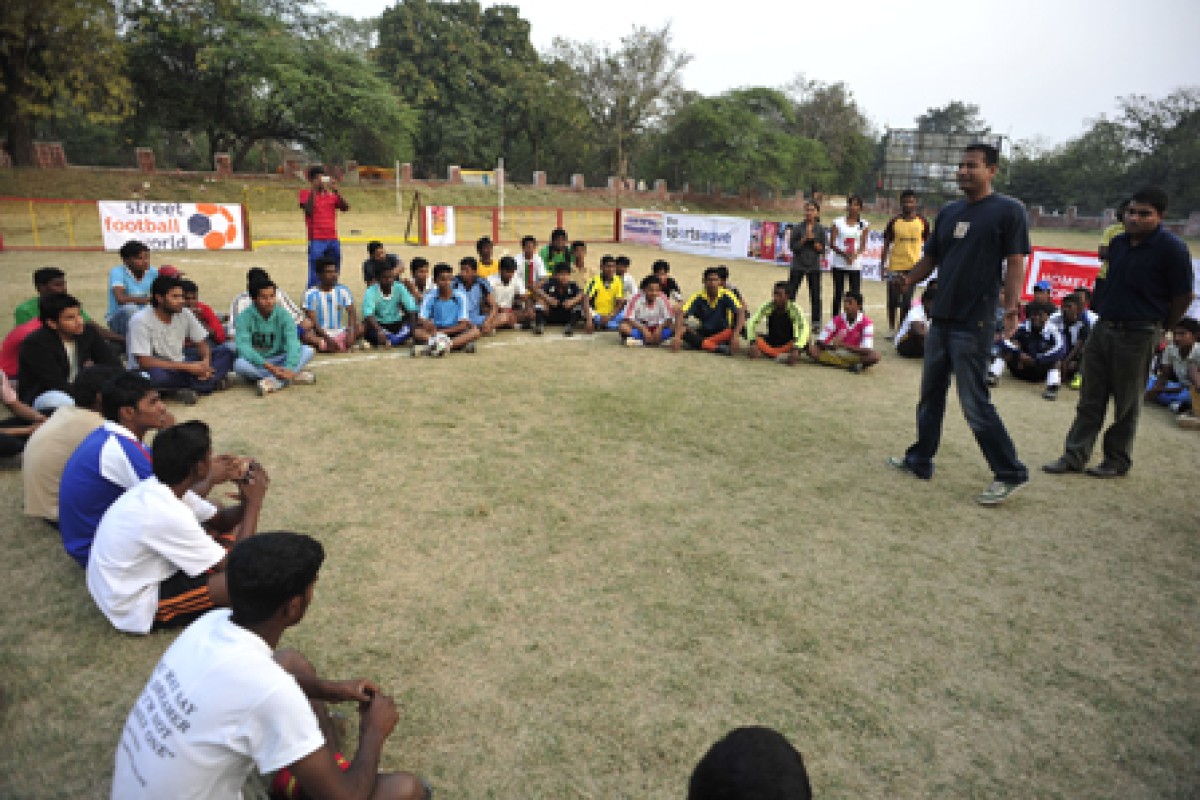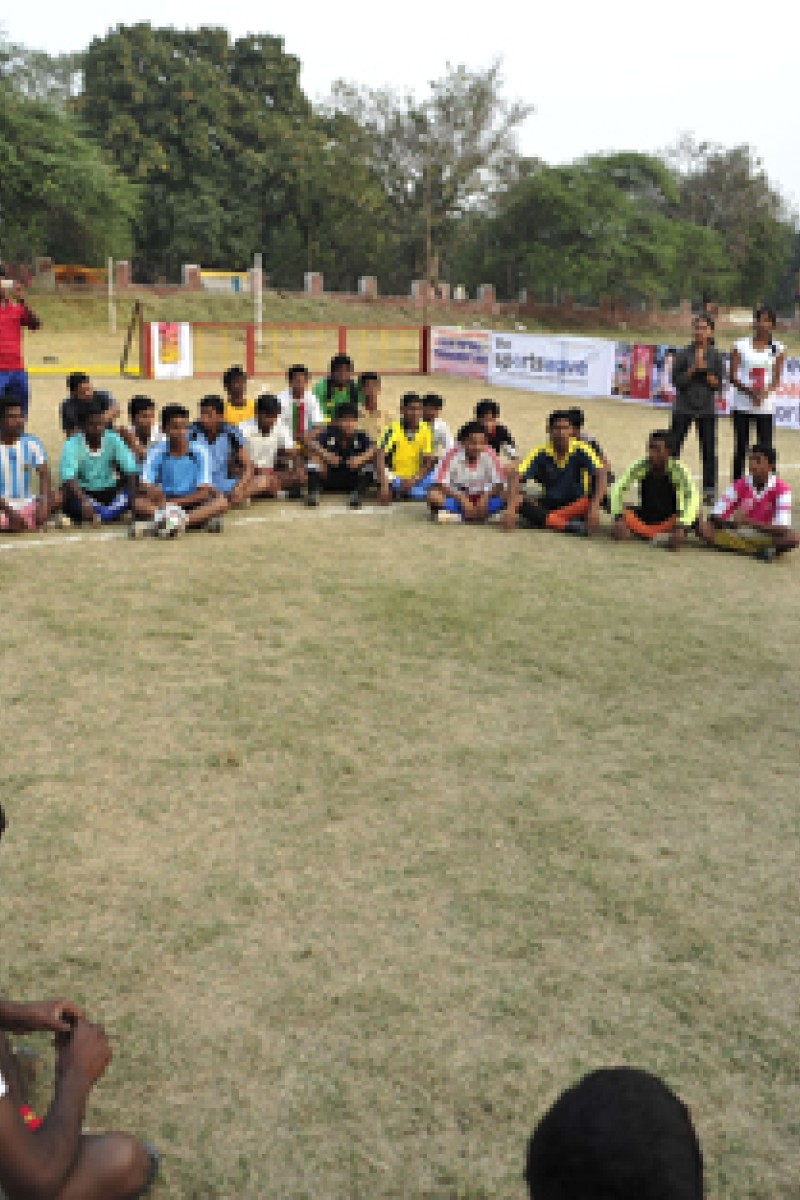 Abhijeet Barse (second right) speaks at a football training session organised by the charity Slum Soccer in India.
Abhijeet Barse (second right) speaks at a football training session organised by the charity Slum Soccer in India.Barse sees football as a way to improve the lives of street children in India. He started his charity in 2001 by organising football matches for people living in India's slums.
Today, Slum Soccer has a network of 10 state partners and 20 non-governmental organisations. The goal is to reach out to 16,000 youngsters from low-income families by next year.
All the players on the football teams come from poor families. Some are at risk of becoming addicted to drugs or alcohol, or suffering from abuse. Barse believes that helping them to focus on sport can help turn their lives around.
"Slum Soccer has been able to reach out to around 2,000 people daily, with tournaments seeing turnouts of around 10,000 players a year," says Barse, in a recent phone interview. "Around 15 per cent of participants give up habits such as drug and alcohol abuse solely through engagement in soccer."
This year, Barse has been elected as a board member of Street Football World, an organisation covering 50 countries that is supported by the sport's main bodies, Fifa and Uefa.
Disha Lohabare, 22, the daughter of a scrap metal vendor, has seen her life change through Slum Soccer. Lohabare says she can show her talents through football. She began to play in Slum Soccer tournaments, and in 2009, was named the Best Female Player of the Year. The experience has changed her life: she is back in school and plans to train other children in her slum to become professional players.
"When I visited the kids in the slum and encouraged them to take part in the game, I could see that they all wanted to become like me," she says. "Slum Soccer has allowed me to live a normal life and become a role model."
Homkant Surandase, 23, has a similar story to tell. He lived in poverty with his father, a labourer, in the state of Maharashtra. While taking part in activities run by Slum Soccer, he was recognised for his football talents. In 2008, he represented India at the Homeless World Cup in Australia.
Today, he coaches underprivileged children for Slum Soccer, helping to transform more and more lives through playing football.
Junior reporter Kabir Laroia, of West Island School, has played soccer since he was four years old. He constantly surfs the net for soccer news. He has been helping to raise funds for Slum Soccer India to participate in the 2013 Homeless World Cup in Poland later this month
